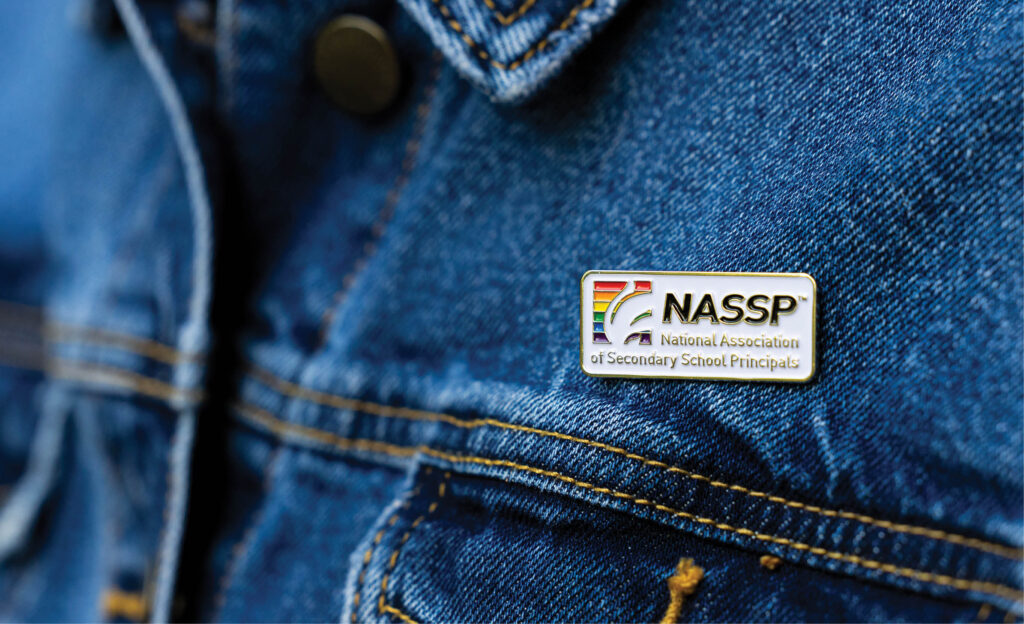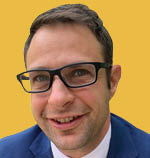Creating Just Communities

The anthropologist Margaret Mead famously wrote, “Never doubt that a small group of thoughtful, committed citizens can change the world; indeed, it is the only thing that ever has.” As a school leader, I hold onto these words with fierce conviction. In a world where calls for universal, quality education or the equal rights of LGBTQ+ individuals have become fodder for political debate, the power of community remains the most powerful force we have to impact the lives of the children we serve.
As a school leader, I must confess that I do not spend the majority of my time thinking about state standards or performance metrics. While it is necessary to commit a degree of time and effort to these topics, I spend most of my time considering community—what it means and how we can cultivate it. Community emerges from the actions of the thoughtful citizens Mead describes. To extend this idea one step further, it is the communities created by these thoughtful citizens that change the world. In honor of LGBT History Month, I want to remind educators that the creation of community shows us that another world is possible, that there is a way to treat one another with genuine kindness, love, and respect—something we all know the world needs now more than ever.
Finding Acceptance at Camp
All of us thrive when we coexist in this type of community. Growing up, school was not the place where I found my community. School was a place where the popular kids flourished and the rest of us tried to learn the rules of an unspoken game—one we knew we could never win. As a child and adolescent in the 1990s who lacked the language of gender, I struggled in many ways to define myself and to find my community. Fortunately, it was my time at summer camp that saved me, literally and figuratively, and would most critically impact my work as a school leader.
I had the privilege of attending Chimney Corners Camp, a residential camp in the Berkshires of Western Massachusetts, for over 10 years. There are many things that made my camp experience magical, from the people to the activities, but most importantly camp was extraordinary because I knew that I was loved and accepted for who I was. Kindness was at the heart of the camp experience, and everyone felt an ethical obligation to care for one another and make them feel welcomed. Looking back, what is ironic is that the place I felt most myself was at an all-girls camp when I knew very well that I was not indeed a girl like everyone else.
Now that I’m out as transgender, I chuckle at the fact that I found my boyhood at an all-girls camp. My experience at camp perfectly demonstrates that inclusion is not predicated on similarity. We do not all have to be the same or alike to feel the warmth that inclusion brings—a common misconception. Community is at its strongest not when we are all the same but when we are free to be ourselves. Take it from a young trans man who never felt more loved and whole than in an environment with people whose gender experiences radically differed from his sense of self. That feeling of inclusion—the feeling of belonging—is what drives my work as a school leader.
Sharing My Story
To create a school culture of belonging requires us to share our authentic selves and to create a safe space for our students to do the same. It requires leaders to be vulnerable and to embrace the belief that strong communities of inclusion can, in fact, change the world. We must share our stories and refuse to let them become the objects of political polarization. We must create space for all students to write their stories, where they feel comfortable exploring different plots. As a child, I found space to do this for one month every year. As a school leader, I pledge to create this space for all students throughout the year.
I tell my story often as my own identity is clouded and concealed by the many privileges I occupy. I am almost always read as a white, straight man with a wife, three thriving children, three dogs, and a picket fence. There is no doubt that privilege pervades my life and existence and I have and will continue to benefit from it, which is why I take every opportunity I can to tell my story. People are often surprised to find out that I am transgender, having transitioned to male shortly after college.
Transgender individuals are often at the center of political discourse, with newspaper headlines about the policing of bathrooms, transgender students and sports, and other sensationalized topics. Rarely are the stories of transgender students, teachers, and principals heard, which leads many to conclude that we do not exist. Trust and believe that we are here. Just because you don’t “see” us doesn’t mean we’re not here. We are living in the midst of—and in spite of—the political debates, where everyone talks about us but never to us. The question isn’t whether there are any transgender principals or educators, but rather when will society create space for us to tell our stories?
This month, we recognize the many transgender individuals (those we know and those we don’t) who contribute to the fabric of our society. I celebrate those who are questioning their gender and those who are trying to find the courage to come out for the first time or the 100th time. I stand in solidarity with those who struggle to find their place in society, and in my work as an educator, I pursue equity at every turn.
As a school leader who happens to be transgender, I am invested in producing positive academic outcomes and opportunities for all students and will continue to uplift the voices of all. Positive academic outcomes are possible when we establish a sense of community where all students and staff are safe and free to explore their identities and speak their truths. And when this happens, community becomes transformative—not just for the transgender individuals who benefit from inclusion—but for all of us. It is in these moments that we show the transformative power of community and its ability to truly change the world we know.

Alastair Pullen, PhD, is a school leader in Atlanta, GA, and a member of NASSP’s LGBTQ+ School Leaders Network.
